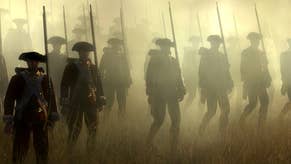Medieval: Total War
Review - the long-awaited sequel to Shogun knocks us senseless
Strategy games are not, in general, particularly thrilling spectacles. Certainly, they are often involving, challenging and interesting - but in terms of stirring the soul, they're not really much cop. There's not a lot of drama or emotion in play when a tank blows up a couple of lighter vehicles in Red Alert, or when your Zerg lay waste to an enemy outpost in StarCraft - which is why finding a strategy game which has the blood of your warrior ancestors pumping through your veins and the bloodthirsty cries of battle ringing in your ears is really something rather special.
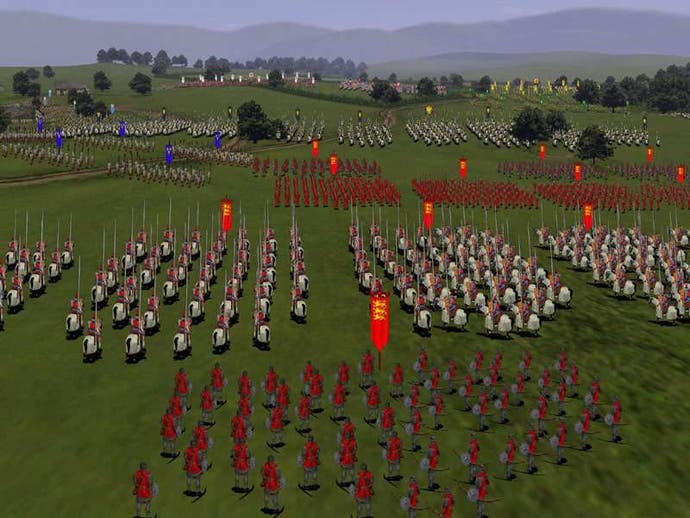
Fight to the Death
And that's exactly what Medieval: Total War is; something rather special. The developers of Shogun: Total War are back with a game which isn't so much an upgrade or a sequel as a complete overhaul of the original, reinventing much of the battle system and almost all of the strategic system to deliver a slicker, more thoughtful and yet even more dramatic game. If you thought charging hundreds of samurai across the fields of Japan into bloody battle was an incredible experience, then the delights offered by Medieval will make your mouth water; and if you've never played Shogun, you truly have a treat in store for you.
Taking it from the top, for the benefit of those who have never played the first Total War title, Medieval is a game, set in Europe during the end of the Dark Ages and the Renaissance, which gives you control of a faction and then sets you loose to achieve domination through a combination of tactical manoeuvring and hard-fought battles on a grand scale. Two almost entirely different games exist here rolled into one; firstly, there is the tactical map, which gives you control of your provinces on an economic, military and political level. Secondly - and herein lies the true hook of the game - there is the battle map, which pits your armies against those of your rivals and gives you direct command.
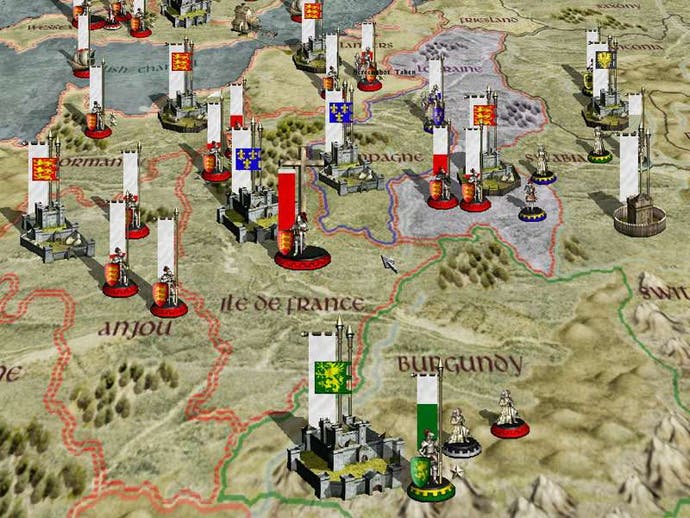
Power, Domination, Control
One of the key differences between Medieval and Shogun is that the tactical map has now been beefed up significantly, with the level of control offered to you - and the resulting level of complexity - being far ahead of anything seen in the previous game. You have direct control of the production queues of each province in terms of buildings and troops, as well as being able to award titles relating to the province to your generals, affect the religion and loyalty of the populace in a variety of ways and even secure yourself against spies and assassins - while using the same tools against your own enemies. You must also keep an eye on the royal family of your realm; the game spans several hundred years, and you'll go through a lot of monarchs in that time - so you need to be sure to keep their heirs safe, because a country without a king will often be reduced into civil war.
If all of this sounds familiar, that's probably because you've played one of Sid Meier's Civilization games in the past. Creative Assembly have certainly taken a lot of inspiration from Civ in creating their tactical play component, and while the technology tree in Medieval certainly isn't as complex or extensive as the one in Civilization, this is more then compensated for by the intricate systems controlling monarchy, succession, generals of armies and governors of provinces. Indeed, in many ways Medieval is a more satisfying tactical game than Civilization III was; the level of forward planning required in conducting a successful military or espionage campaign is much higher, and the sense of overall achievement when you conquer a rival or even just capture a province is far beyond anything Civ has to offer.
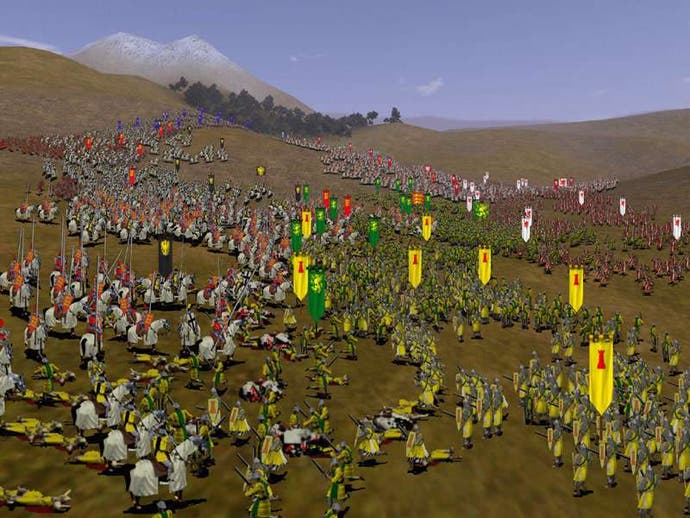
Dulce Et Decorum Est…
Of course, the incredibly good tactical game is only half of the story where Medieval is concerned, because when your armies march off to war in this game, you get the chance to control their battles directly. The computer can, of course, resolve disputes on purely numerical basis - but a little tactical flair can overcome even quite overwhelming odds, so it's almost always worth your while to take control yourself. Besides, if you choose to ignore the battles, you're missing a really big part of the overall package - and one of the best war simulations ever created. Set on a variety of giant, rolling landscapes, you can take control of literally thousands of troops, organised into a number of divisions, and must take advantage of the landscape and the composition of your forces in either defending your territory or invading an enemy province.
The sensation of scale and drama in these conflicts is incredible; imagine the opening scene of Gladiator replayed on a grand scale, with fantastic music that rises and falls according to the events on the battlefield and hundreds of units clashing noisily on the hillsides and valleys of the province. The simulation of battle is also superb, with height offering a real tactical advantage, and the strengths and weaknesses of each unit accurately modelled - right down to archers having poor aim in bad weather, and camel-mounted Arab troops panicking the horses of cavalry! There's little in gaming terms that can match the drama and satisfaction of an uphill enemy charge being cut down by lines made up of hundreds of strategically positioned archers on the hilltop, before your cavalry race downhill to pick off the retreating stragglers.
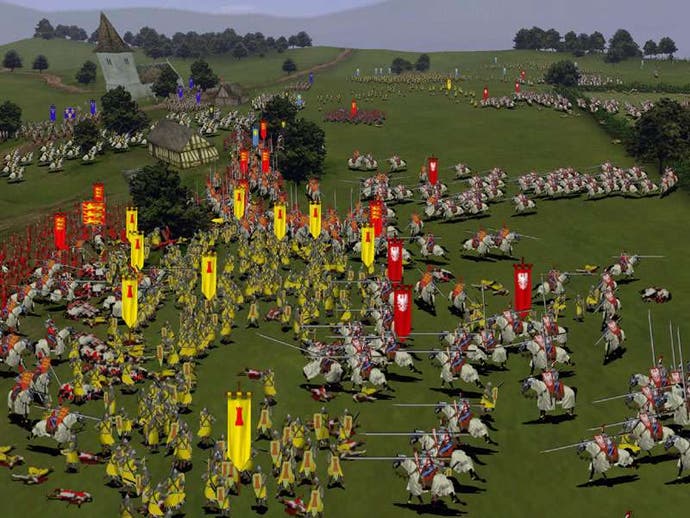
Battlefield Control Terminated
Control of the battlefield is not perfect - the camera can occasionally be fiddly, and it can sometimes be difficult to see exactly what all of your units are doing at any given time. However, in ways, this confusion adds to the atmosphere of the game; while the gamer in you hankers for the accurate, pixel perfect controls espoused by modern RTS titles, it has to be remembered that war in medieval times simply didn't work that way - not to mention that factors such as the tiredness and morale of your troops will have a major effect on how accurately your orders are carried out, and with what speed.
All in all, Medieval presents a stunningly rounded package, combining the most dramatic and stirring renditions of the battlefield ever created with a deep and cerebral tactical game which rivals any god-game on the market in terms of complexity and entertainment. Creative Assembly have crafted a masterpiece; a game which may not have massive mainstream appeal for casual gamers, but which anyone who enjoys strategy or historic war will rightly recognise as a milestone in gaming.


